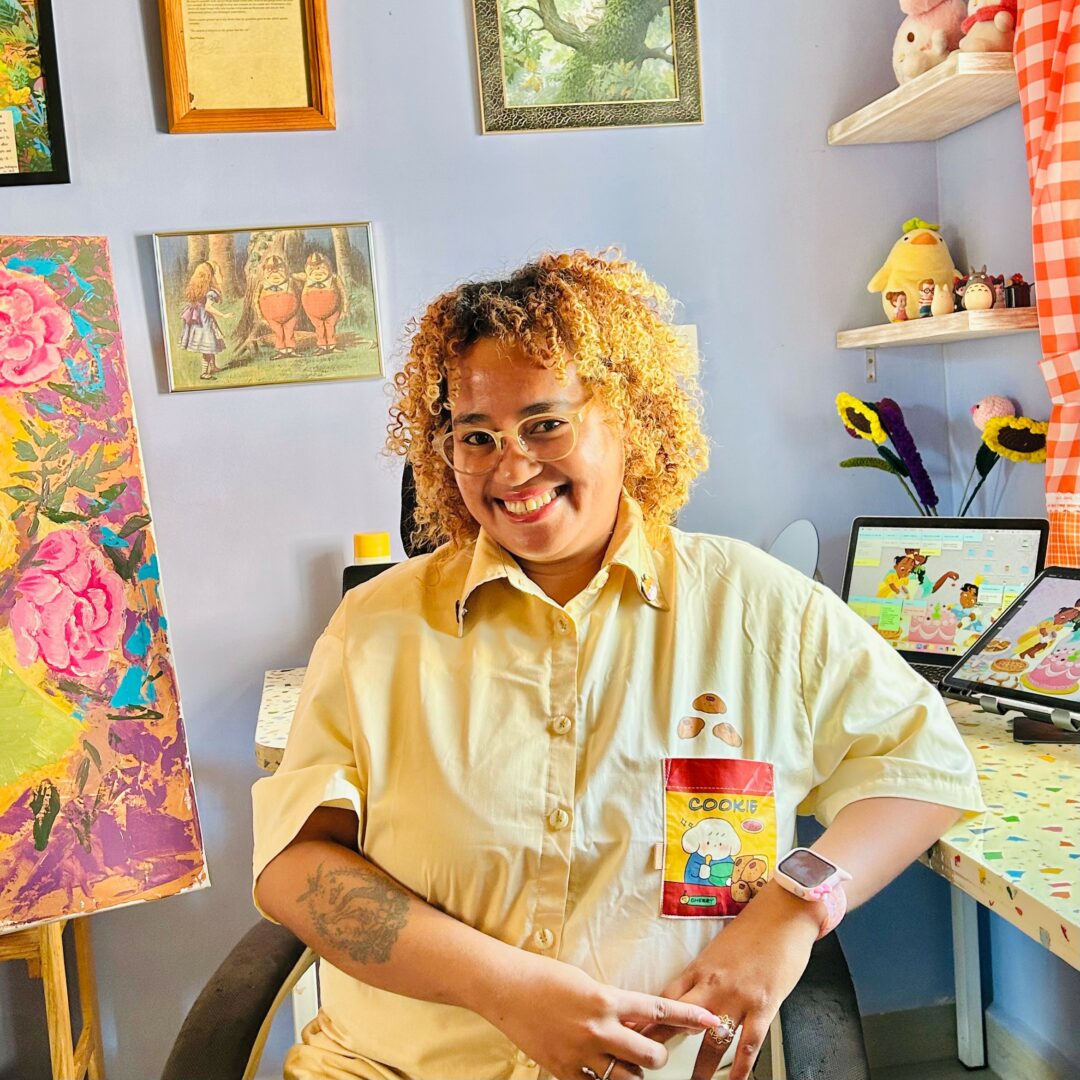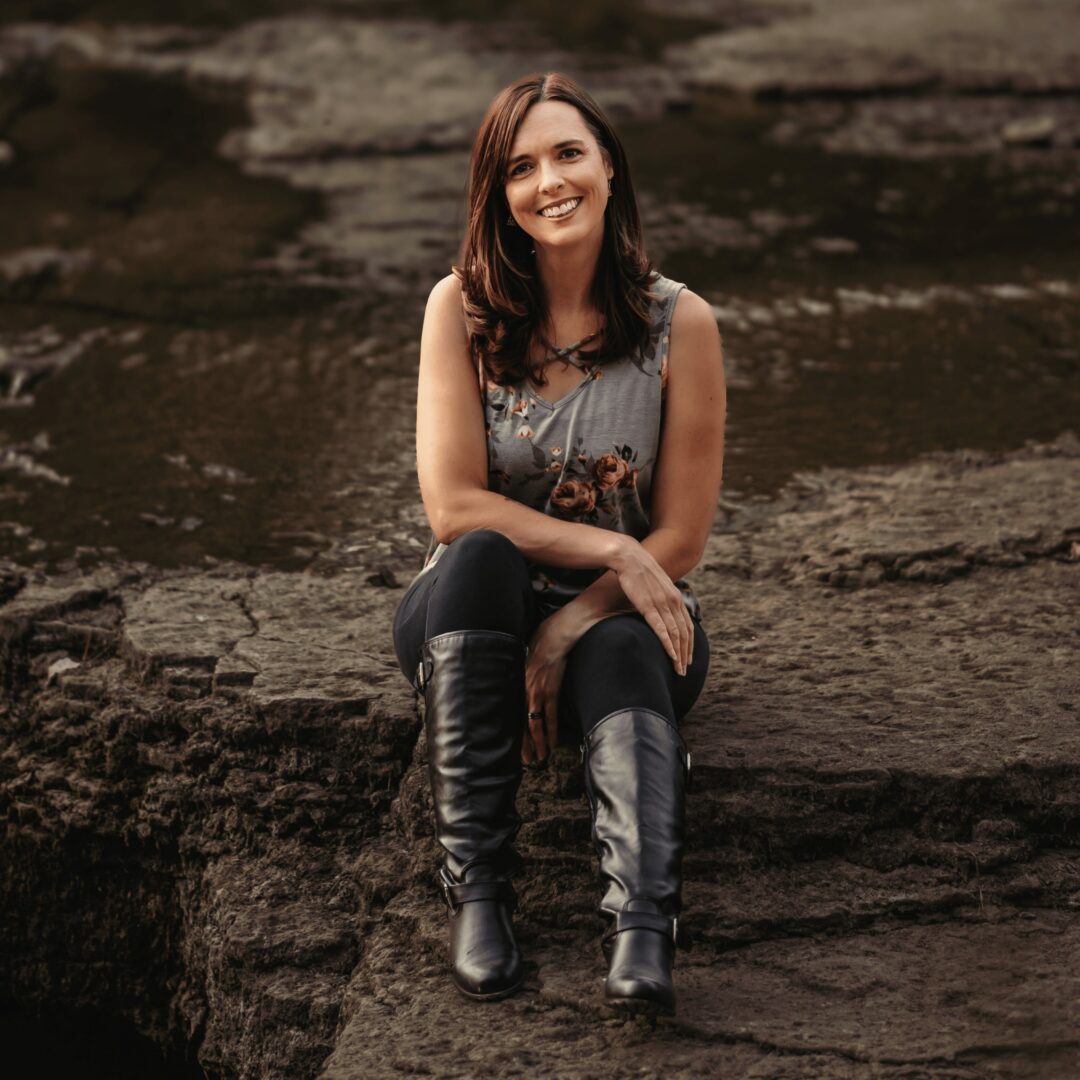Alright – so today we’ve got the honor of introducing you to Shonna Roberts. We think you’ll enjoy our conversation, we’ve shared it below.
Shonna, it’s so great to be with you and I think a lot of folks are going to benefit from hearing your story and lessons and wisdom. Imposter Syndrome is something that we know how words to describe, but it’s something that has held people back forever and so we’re really interested to hear about your story and how you overcame imposter syndrome.
Is it imposter syndrome or is it self examination? The little voice in your head telling you “you’re not good enough, you don’t belong”. I don’t know that I’ve really truly overcome what some people refer to as Imposter Syndrome but what I have done is change the way I view the term and embrace self examination. I know I’m good enough and I know I belong but it’s ok to think “was that good enough, could I have done better and how can I make myself feel more confident in my surroundings”.
The Realization
It all started when I read an article that put imposter syndrome in a new light. Rather than framing it as a personal flaw, it highlighted the societal pressures that often fuel these feelings, especially for women. The pressure to perform, the fear of being judged—these aren’t just personal battles; they’re systemic. This realization was my first “aha” moment. I wasn’t alone, and it wasn’t just me who felt like a fake.
Shifting the Narrative
Once I recognized that imposter syndrome wasn’t a personal failing, I began to shift my narrative. Instead of thinking, “I don’t belong here,” I started telling myself, “I earned my place here.” Every time I completed a project or received positive feedback, I consciously acknowledged my achievements. It felt weird at first, almost like I was lying to myself, but over time, it became more natural.
Embracing My Journey
Another game-changer was embracing my unique journey. I’ve made mistakes, learned from them, and grown along the way. Instead of focusing on how others seemed to have it all together, I started to appreciate my own path. It’s like comparing apples to oranges—everyone’s journey is different, and that’s what makes it special. I learned to celebrate my experiences instead of measuring myself against others.
Building a Support System
Having a solid support system made a massive difference, too. I started confiding in friends and colleagues about my feelings of self-doubt. To my surprise, many of them felt the same way! It was a huge relief to realize that we were all navigating this messy, complicated world together. We began to cheer each other on, share our successes, and remind each other of our worth. It turns out that talking about these feelings can lighten the load, and it’s a reminder that we’re not in this alone.
Seeking Out Role Models
I also started seeking out role models who embraced their imperfections. Women in leadership positions who openly discussed their struggles and failures became my new sources of inspiration. Their honesty made me realize that everyone experiences doubt—what matters is how we respond to it. By watching them embrace their flaws, I learned to be kinder to myself and recognize that nobody has it all figured out.
Practicing Self-Compassion
Lastly, self-compassion became my secret weapon. Whenever that pesky imposter voice started creeping in, I’d pause and remind myself to be gentle with my thoughts. Instead of berating myself for not being perfect, I learned to say, “It’s okay to feel this way; I’m doing my best.” This simple shift has been transformative, allowing me to embrace both my strengths and my weaknesses.
So, have I overcome Imposter Syndrome? Yes, because I don’t even recognize the term. I embrace self examination and I know that I’m not alone. By shifting my perspective, embracing my unique journey, building a support system, seeking inspiration from others, and practicing self-compassion, I ditched the imposter.
You’ve got what it takes—own it, and remember that you belong just as much as anyone else.

Thanks for sharing that. So, before we get any further into our conversation, can you tell our readers a bit about yourself and what you’re working on?
I am a medical tattooist and trainer at DAELA Cosmetic Tattoo in Portland Oregon and Vancouver Washington. I specialize in Scar and Stretch Mark Camouflage and Areola Restoration.
Scar camouflage is a specialized cosmetic tattooing technique used to blend scars and stretch marks with the surrounding skin tone, making them less noticeable. I use an advanced knowledge of color theory and create a custom pigment to match your skin color and tone, creating a natural-looking invisible tattoo.
Areola restoration is a medical tattoo where I create soft and hyper-realistic areolas, and 3D nipples, restoring a natural appearance to the breast. This medical tattooing technique is commonly sought by individuals who have undergone a mastectomy or top surgery. Areola restoration helps to recreate the color, shape, and texture of the areolas, enhancing the overall aesthetic outcome and providing a sense of wholeness, while giving the illusion of a 3D nipple.
I have an incredibly rewarding career! Whether a person is processing past trauma from an accident or injury or they are marking the finish line for their cancer treatment, I am typically the last stop in their journey. I am the person they see when they are ready to move forward or move past a life changing experience.
It humbles everyday that they choose me to help them along the way.

Looking back, what do you think were the three qualities, skills, or areas of knowledge that were most impactful in your journey? What advice do you have for folks who are early in their journey in terms of how they can best develop or improve on these?
Looking back on my journey, I can identify three key qualities that really helped me thrive and get to where I am today.
Practice mindfulness. When you’re working on something, give it your full attention. Create a workspace that minimizes distractions, and don’t rush through tasks. The more you refine this skill, the more confident you’ll become in your abilities.
Work on your active listening skills. Try to put yourself in others’ shoes and ask open-ended questions to encourage deeper conversations. The more you build trust and understanding, the more opportunities you’ll create for yourself.
Make learning a regular part of your routine. Attend workshops, join online courses, or follow industry leaders on social media. Stay curious and open to new ideas! The more you expand your knowledge, the more equipped you’ll be to navigate your career path.
These qualities have not only enriched my career but also deepened my connections with others. Here’s to your journey—can’t wait to see where it takes you!

Okay, so before we go we always love to ask if you are looking for folks to partner or collaborate with?
I’m on the lookout for passionate individuals and organizations to collaborate with in the medical tattooing field! If you’re someone eager to enter this rewarding profession, a cancer nonprofit dedicated to helping survivors, or a surgeon interested in enhancing patient care through tattooing, I’d love to connect. Together, we can make a meaningful impact! Feel free to reach out to me via my website, email or social media channels. Let’s join forces and create something amazing!
[email protected]
https://www.daelacosmetictattoo.com/portland/contact/
Instagram: @thescartattooer
Contact Info:
- Website: https://www.daelacosmetictattoo.com
- Instagram: @thescartattooer
- Other: email: [email protected]


so if you or someone you know deserves recognition please let us know here.




